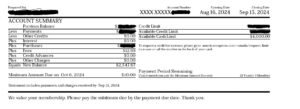What are the legal requirements to fly a drone in Canada? What are the general rules to follow before you can fly your drone? How hard is it to obtain a Canada Pilot drone license? Should you register your drone? How do you get a license as a visitor in Canada? Will I have to write an online exam? Can you fly a drone in Canada’s National Parks? What about getting fined for flying your drone? And can Part 107 licensed Pilots fly legally in Canada? These are all valid questions anyone planning to fly a drone in Canada should ask before you buy that drone. Don’t get fined!
A drone, also known as UAV (Unmanned Aerial Vehicle) is a device that can be remotely piloted or fly autonomously. It typically has multiple spinning rotors and is often equipmed with a camera for capturing photos and videos. It is used for recreational, commercial, and military purposes. Drones can be dangerous if flown irresponsibly. As a result, Transport Canada has set rules and regulations, drone pilot must obey.
Flying a drone is fun and it allows you see the world from a bird’s eye perspective but that does not mean you can fly anywhere in Canada. Drones have been used to: deliver drugs in remote locations; inspect buildings; rescue operation; sport racing and agriculture. Drones for recreational or commercial purposes are available from different manufacturers across the world including DJI, Parrot , Skydio, and GoPro to name a few.
Some Legal Requirements
Transport Canada requires done pilots to follow the Canadian Aviation Regulations (CARs), specifically Part IX, which governs Remotely Piloted Aircraft Systems (RPAS)
- Follow the rules in the Canadian aviation regulations (CARs) as defined in Part IX-Remotely piloted aircraft systems;
- Obtain a drone pilot certificate;
- Understand the section of the criminal code including offences against air or maritime safety, breaking and entering and mischief;
- Understand each province’s trespass act; and
- Understand the laws related to voyeurism and privacy.
Flying a drone illegally could result in penalties, which may be fines and/or jail time. For example, recreational drone use is prohibited in all Parks Canada places. Fines for violations start at $575 and can go up to $25,000 for severe infractions. However, commercial or research drone operations may be allowed with specific approval.”
For more information on the rules, click here
General rules for drone in Canada
- All drones (UAV) that weigh more than 250grams must be registered with Transport Canada.
- For drone registration purposes, the individual must be at least 14 years of age, a citizen of Canada or permanent resident of Canada, a corporation incorporated under the territorial, provincial or federal laws or Canada and/or a municipal, provincial or federal entity.
- Drone registration number must be visibly marked on the remotely piloted aircraft
- Confirmation of certificate of registration must be easily accessible to the pilot during flight operation
- Maximum flight altitude is below 400 feet
- To fly a drone with weight between 250grams and 25kilograms, you need to obtain either a basic operation or advanced operation license.
- The pilot or a visual observer must always maintain visual line- of sight during the flight. It may be possible to fly without visual line-of-sight if the pilot can obtain a Special Flight Operation Certificate -RPAS
- Do not operate a drone over or within the security perimeter established by a public authority in response to an emergency. This can only be done in the service of a public authority
- Pilot must not conduct operation of a remotely piloted aircraft system within 12 hours of consuming alcoholic beverage, while under the influence of alcohol or while unfit to perform the flight operation
- The operation manual of the drone must be easily accessible during flight operations
- A drone must not be operated during icing conditions unless it is equipped with de-icing or anti-icing equipment.
- A pilot cannot operate a remotely piloted aircraft while operating a moving vehicle, or vessel.
- Do not fly a drone during the night unless it is equipped with light that makes it visible to the pilot during flight operation.
For more information on the rules, click here
Category of Drone Certification in Canada
There are two main certifications that can be obtained to become a RPAS (Remotely Piloted Aircraft System) Pilot in Canada: Basic and Advanced operation certificate for visual line of site(VLOS) operation.
Pilot certificate- small remotely piloted aircraft (VLOS)-Basic Operations
The basic operation certificate applies to the operation of a remote piloted aircraft systems that IS NOT intended to conduct flight operations
- in controlled airspace;
- at less than 100 feet from another person measured horizontally;
- within three nautical miles from the centre of an airport, or within one nautical mile from the centre of a heliport;
- fly over anyone that is not directly associated with the operation.
The main requirements for this certificate are:
- The applicant must be at least 14 years of age. If the pilot is less than 14 years of age, the operation must be conducted under the direct supervision of a person who is 14 years of age or older and has with the Basic operation certificate or the Advance operation certificate.
- Successfully pass the examination “Remote Piloted Aircraft Systems-Basic Operations”
The Pilot must follow all other rules applicable at the provincial and municipal level. Within the 24 months of obtaining a basic operation certificate or advance operation certificate, Recency requirements must be met
Pilot certificate-small remotely piloted aircraft (VLOS) – advanced operations
This certificate is for pilot with the intention to fly
- in controlled airspace;
- a drone that approved and has RPAS- Safety Assurance declaration
- at less than 100 feet from another person measured horizontally;
- within three nautical miles from the center of an airport, or within one nautical mile from the center of a heliport;
- over anyone that is not directly associated with the operation.
Most commercial drone operators will need this and the main requirements for this certificate are
- The pilot must be 16 years of age;
- Must successfully pass the examination “Remotely Piloted Aircraft Systems – Advanced Operations”
- Must successfully pass a flight review
In addition to the general rules, provincial and municipal rules, the pilot must request a RPAS Flight Authorization to fly in a controlled airspace.
How to pass the drone pilot test
If your drone weigh 250grams and up to 25kg, you need to be certified by passing an exam administered online by Transport Canada. The basic operation and advanced operation exams are conducted online. The flight review requires registration with a flight reviewer.
The Pilot Certificate – Basic operations is an online basic exam and it features 35 multiple choice questions. You have 90 minutes to complete the exam. A 65% score is required to pass the exam. click here to apply for the exam.
The Pilot Certificate – Advanced operations exam features 50 multiple choice questions and a time limit of 60 minutes. A minimum score of 85% is required to pass the exam. Click here to apply.
To study for the exams, Transport Canada recommended the following documents
- Knowledge Requirements for Pilots of RPAS Systems 250g – 25kg
- Canadian Aviation Regulation (CAR) – Part IX-Remotely Piloted Aircraft Systems
- Aeronautical Information Manual
- Transport Canada Drone Safety
Can Part 107 Pilot fly in Canada?
Foreign operators can fly drones under 250 grams without needing to register them, but they must still comply with Canadian laws, including respecting no-fly zones and privacy regulations. For drones over 250 grams, an approved Special Flight Operations Certificate (SFOC) is required.
Part 107 licensed pilot in the United States require a Special Flight Operations Certificate (SFOC) -RPAS. Transport Canada suggests the application be submitted at least 30 working days before the date of the proposed operation. To apply for an SFOC, complete this application here.
Where can I fly in Canada?
The National Research Council (NRC) created an interactive map that allows drone operator find out where they can fly. Despite this tool, comply with Transport Canada rules and regulations before setting out to fly your drone.
The interactive tool has a quick start guide and is easy to use. The map uses color to identify areas
- Red– Prohibited
- Yellow – Caution
- Orange – Require permission
Another tool I have come across is Drone Pilot Canada. It is available on google play store and it is worth checking out.
Drone Rules in Canada National Parks
Recreational use of drones at all Parks Canada places is prohibited
For reasons other than recreational, Parks Canada may approve drone use with strict limits and conditions. Fines for violations start at $575 and can go up to $25,000 for severe infractions. However, commercial or research drone operations may be allowed with specific approval.
For more information, please visit Parks Canada Website .
The National Parks of Canada Aircraft Access Regulations (SOR/97-150) is a good read.
An excerpt of the rule “…. it is prohibited for a person to conduct a take-off or landing of an aircraft in a park….”. It’s important to note that flying over national parks without permission is also prohibited, even if you take off and land outside the park boundaries. Ensure you have the necessary approvals before flying near or over any national park.
Drone Rules Calgary
Alberta government legislation on drones indicates that Transport Canada has jurisdiction over drone flights through the Aeronautics Acts and Canadian Aviation Regulations.
The city of Calgary Parks & Pathways Bylaws now permits the use of drones under 250grams in designated areas. If the drone weigh over 250grams, a permit to operate is required.
The minimum penalty for operating a drone in a park is $150 with a specified penalty of $250 according to Bylaw number 11M2019.
Calgary international airport fall within Class C airspace and has a control zone of seven Nautical mile radius around the airport. Seven nautical miles around the airport almost converts 80% of Calgary city limits. Regardless of weight, flying a drone within this control zone is prohibited though pilots with advanced operations certificate with an approved Special Flight Operations Certificate may be permitted.
My Two Cents
The general public, drone enthusiast and hobbyist should be rest assured these rules are to protect the public’s safety and ensure Pilot’s accountability. Drones have come to stay. Commercial operation of drones is growing and has become a multi billion dollar industry. Drones will deliver packages at customer’s door. Drone technology has come to complement our lifestyle.
Ensure you’re fully informed and compliant with all regulations to enjoy your drone experience in Canada safely and legally.”




